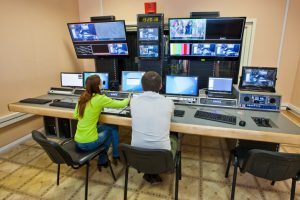Broadcast automation is a fundamental piece of any advanced radio station. The automation frameworks that may have gotten the job done for a station’s needs ten years prior don’t fulfill the various new needs of the present broadcast and gushing condition.
The present best broadcast automation frameworks must be good with traffic and music booking programming, work with an assortment of versatile stages, and be simple for both specialized and non-specialized faculty to utilize. In the meantime, they should be sufficiently adaptable to address the difficulties of new flag dissemination stages and whatever else the eventual fate of radio may hold.
The New Decade of Playout Broadcast Automation
The automation frameworks in numerous stations never again address every one of the issues of the present radio condition. The circumstance was somewhat of mishmash in the good old days. There was no explanation to why certain things were done the manner in which they were finished. There was a line to utilize the generation room—how could that be effective? It was never set up effectively.
It has been over a long time since the principal completely broadcast automation frameworks entered everyday use in the radio business. From the underlying restricted employment of these frameworks—principally supplanting tape-based simple trucks to play music, spots, and liners—automation rapidly wound up fundamental for pretty much every on-air work in radio. Current mechanization frameworks take into consideration air shifts being voice-followed, either on location or remotely, therefore decreasing faculty costs.
Coordinating Traffic and Music Scheduling
Previously broadcast automation engineering worked with traffic and planning frameworks by bringing in logs once or a few times each day. In the improvement, there is a need to make a more tightly connected. There’s constant synchronize between frameworks. You can roll out improvement, and it will show up quickly. Including a tune and having it promptly accessible to be booked in is what’s to come. Continuous compromise is the arrangement. In case a melody doesn’t get played in 60 minutes, you can move it to the following and still pursue every one of the principles.
Decrease the Total Cost of Ownership
One of the standard points of interest of virtualization is the decrease in Total Cost of Ownership. While the underlying capital expense might be higher than customary automation workstations, the cost reserve funds are acknowledged in lower upkeep expenses and equipment overhauls. This is expected, in expensive part, to the way that the brought together equipment is a common asset used by each virtual workstation and document server on the system. Furthermore, the expense of fueling and cooling the framework is radically lower than driving and cooling the different PCs of a conventional framework, particularly considering the power drawn when frameworks are in reserve.
Brought together Storage and Safeguarding Data
With a virtual framework, all records are put away on the single equipment unit and can be recovered from any customer with little exertion. To achieve this, all information is put away on one equipment unit much of the time with excess drives. Unifying information is significant to keep a framework perfect and sorted out, yet could be helpless if not profoundly excess. It is additionally critical that equipment issues don’t intrude on framework activities. Some equipment units take into consideration a consistent recuperation in case of an equipment disappointment in the unit.
This is how the future of the broadcast playout automation is going to be pretty soon. And this is no surprise with the rate of technological advancement in the broadcast realm in the recent past.

